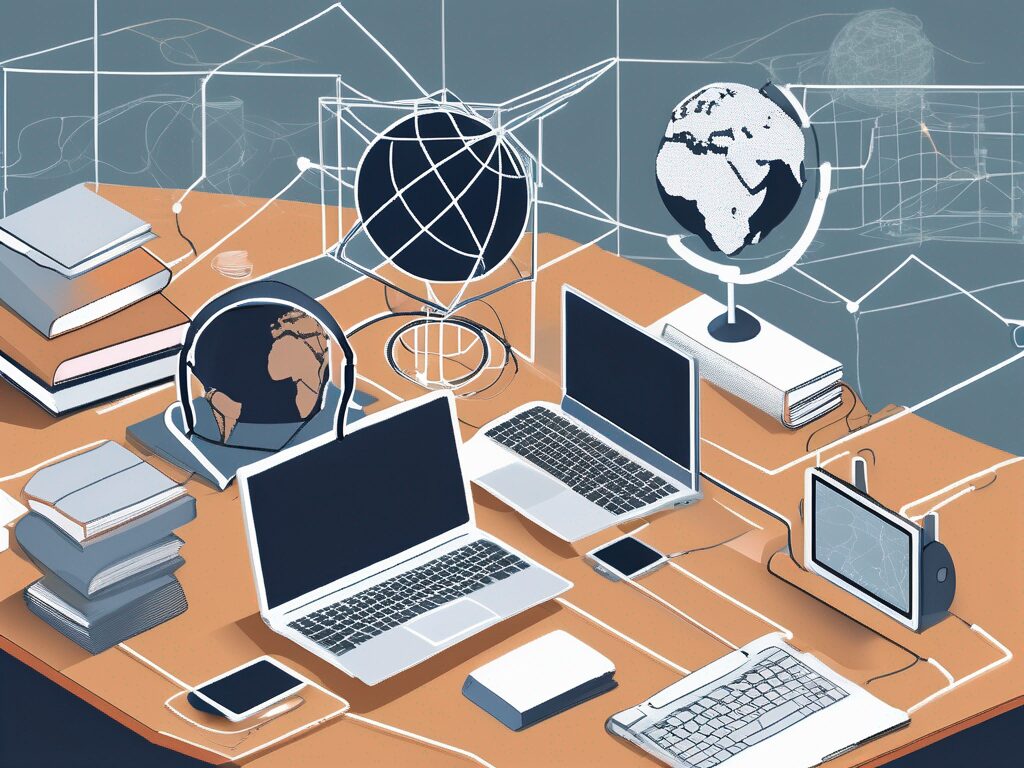In the ever-evolving world of education, technology plays a pivotal role in shaping the way we teach and learn. The International Postgraduate Certificate in Education (IPGCE) recognises this, and has integrated various forms of educational technology to innovate learning. This article will delve into six key educational technologies that are transforming the IPGCE landscape.
1. Learning Management Systems (LMS)
Learning Management Systems, or LMS for short, are the backbone of online learning in the IPGCE. They provide a platform where educators can create, manage and deliver educational content. Think of it as a digital classroom, where students can access course materials, submit assignments and interact with their peers and teachers.
Popular LMS platforms like Moodle and Blackboard are widely used in IPGCE courses. They offer a range of features, from grading tools to discussion forums, that facilitate interactive and collaborative learning. It’s a bit like having a school in your pocket, accessible anytime, anywhere.
2. Virtual Reality (VR) and Augmented Reality (AR)
Imagine walking through the ruins of Ancient Rome, or exploring the depths of the ocean, all from the comfort of your classroom. With VR and AR technologies, these immersive learning experiences are now a reality in the IPGCE.
VR and AR technologies provide a 3D learning environment where students can interact with virtual objects and scenarios. It’s like playing a video game, but one that’s educational and directly related to your coursework. This immersive learning approach can help students better understand complex concepts and retain information more effectively.
3. Interactive Whiteboards
Interactive whiteboards are a staple in many modern classrooms, and the IPGCE is no exception. These devices allow teachers to present information in a dynamic and engaging way, far removed from the traditional chalk-and-talk approach.
With an interactive whiteboard, teachers can display videos, animations, and other multimedia content to enhance their lessons. It’s like having a cinema screen in your classroom, bringing lessons to life in a way that a textbook simply can’t.
4. Mobile Learning
With the ubiquity of smartphones and tablets, mobile learning has become a key component of the IPGCE. Mobile learning, or m-learning, involves using mobile devices to access educational content, both in and out of the classroom.
With m-learning, students can learn at their own pace, revisiting material as needed and accessing resources whenever they have a spare moment. It’s a bit like having a personal tutor in your pocket, ready to help whenever you need it.
5. Gamification
Gamification involves applying game design elements to non-game contexts, like education. In the IPGCE, gamification is used to make learning more engaging and fun. It’s a bit like playing a game, but one where you’re learning valuable skills and knowledge along the way.
From digital badges to leaderboards, gamification techniques can motivate students to participate and strive for excellence. By making learning a fun and competitive experience, students are more likely to stay engaged and retain the information they learn.
6. Artificial Intelligence (AI)
Artificial Intelligence, or AI, is increasingly being used in education, and the IPGCE is no exception. AI can automate administrative tasks, like grading, allowing teachers to spend more time on instruction. It can also provide personalised learning experiences, adapting to each student’s needs and pace of learning.
Imagine having a personal tutor that knows your strengths and weaknesses, and can adapt lessons accordingly. That’s the promise of AI in education. By providing personalised instruction, AI can help students learn more effectively and efficiently.
These six educational technologies are revolutionising the way we teach and learn in the IPGCE. By harnessing these technologies, we can create a more engaging, interactive and effective learning experience for students. As technology continues to evolve, we can expect to see even more innovative approaches to education in the IPGCE.
Advance Your Teaching Career with Cutting-Edge Technology
As you embrace the transformative power of educational technology in the IPGCE, take the next step in your professional development with The IQTS at UWE. Our International Qualified Teacher Status (iQTS) programme is designed to elevate your teaching credentials, offering a Level 7 qualification that not only enhances your understanding of global education systems but also significantly boosts your career progression. Join a thriving community of educators, reduce feelings of professional isolation, and balance your work commitments with flexible online study options. Make Your Next Step towards a more rewarding teaching career and become part of the 90% who are satisfied with the insights provided by the iQTS programme. Enroll now and start making a difference in your professional journey.

